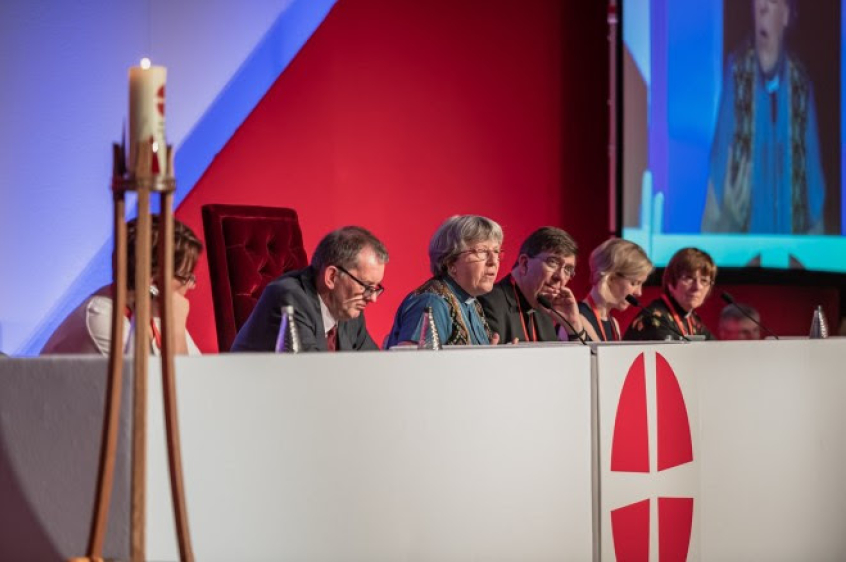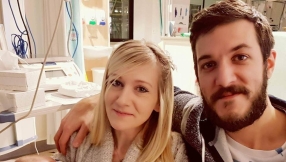
The Church of England's national assembly has backed proposals to continue the process towards communion with the Methodist Church.
Members of the General Synod meeting in York over the weekend agreed to begin drafting a number of texts towards this end, including a "formal declaration" outlining a new relationship of communion between the two Churches.
The motion approved by Synod also instructs the Faith and Order Commission to work on additional texts for the inaugural services that would take place after communion is agreed, and the guidelines covering how presbyters and priests from each Church could serve in the other.
The House of Bishops is to report back on the progress being made following elections to the new General Synod taking place next year.
The Bishop of Coventry, Christopher Cocksworth, said the proposals offered a "historic opportunity" for the two Churches.
"My prayer is that you we will make a clear and well-informed decision with full awareness of its implications not only for our relationship with the Methodist Church, our close historical cousin and covenant partner, but also for the credibility of the commitments of the Church of England and the Anglican Communion have made for 100 years to restore the unity of the Body of Christ," he said during the debate.
The proposals have the backing of the Archbishop of Canterbury, Justin Welby, who told the General Synod: "I for one am profoundly committed to moving forward in this matter, for the sake of the Gospel, for the sake of the Church and for the sake of the world we are sent to serve."
The motion passed by Synod affirms the "priority of doing mission together" but also recognises that "for some within the Church of England, concerns about the proposals remain".
Some of these concerns relate to the differences between presbyters and priests.
The Anglican Catholic Future group said that its concerns have not been allayed by the latest recommendations and that "rather than serving the greater unity of the Church, [they] will divide the Church yet further".
It added: "Difficult though it may be to say, the Church of England simply does not hold that a Methodist presbyter is entirely equivalent to one in our own church. Our practice makes that clear."
Speaking ahead of the debate, Forward in Faith agreed, saying that it would be "premature and irresponsible" for the General Synod to vote for legislation to be drawn up while the proposals are still in a developmental stage.
"Proposals that sacrifice doctrinal integrity to ecumenical expediency are unlikely to prove wholesome, fruitful or – in the end – unifying," it said.
Ruth Gee, Assistant Secretary of the Conference and Connexional Ecumenical Officer who was at the debate said: "We are pleased that significant work will continue and that there was much affirmation of the missional imperative of the covenant from members of the Synod.
"Though we had hoped that the Synod would be willing to move to legislation, we understand the reasons why some members of the Synod felt it important to give this vital matter more consideration and were heartened by the affirmative comments of the Archbishop of Canterbury in the debate and the overwhelming vote in favour of the proposals.
"Our journey continues as we pray and work together for the sake of the church and the world and in response to the prayer of Jesus that we might be one."
Speaking at General Synod at the weekend as the new Methodist ecumenical representative, Susan Howdle said: "We have heard something of the rich meaning of Covenant ... I do still retain a sense of excitement and hope at the possibilities which could lie ahead. I want to assure you on behalf of the Methodist Church that we remain committed to our worshipping, witnessing and working together."













